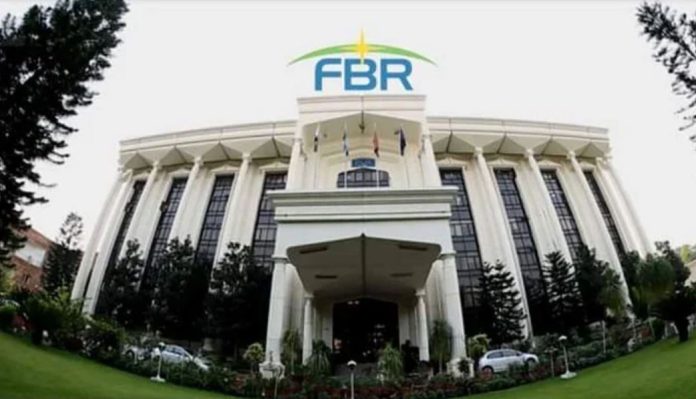———— Proposes freezing bank accounts, banning property, vehicle purchases for tax evaders
———— Recommends policy changes for the incorrect tax documents
———— Third-party audit, use of AI proposed for increased transparency
By Ali Imran
ISLAMABAD: As the Prime Minister Shehbaz Sharif-led government aims to address its fiscal woes, the Federal Board of Revenue (FBR) has proposed drastic measures to avoid a possible shortfall in tax col-lection including freezing bank accounts and imposing a ban on the purchase of property and vehicles for tax evaders, The News reported on Thursday.
Facing a monumental tax shortfall in the first quarter (July-September) under the IMF programme of $7 billion Extended Fund Facility (EFF) coupled with its failure to bring 3.2 million retailers into the tax net, the tax collection body has geared up for significant taxation measures against millions. The incumbent government, in its tax-heavy budget passed in June, had set out an ambitious taxation plan to boost its prospects of securing a fresh bailout deal with the IMF — which it eventually did as the programme now awaits the approval of the Fund’s executive board.
The incumbent government, in its tax-heavy budget passed in June, had set out an ambitious taxation plan to boost its prospects of securing a fresh bailout deal with the IMF — which it eventually did as the programme now awaits the approval of the Fund’s executive board.
Sources say that an internal assessment of the FBR has shown a tax shortfall of over Rs220 billion for the first quarter (July-September) against the agreed target of Rs2,652 billion.
The authority faced a shortfall of Rs98 billion in August 2024. The FBR had collected Rs1,456 billion in the first two months (July and August) against the assigned target of Rs1,554 billion leaving the body with the challenging task of fetching Rs1,196 billion during the ongoing month (September) to materi-alise the first quarter agreed target with the IMF.
The annual tax collection target of FBR envisaged Rs12,970 billion, which was approved by parliament (Rs12,913 billion).
Speaking to the publication on Wednesday, official sources have confirmed that the FBR identified two million nil filers out of the total of six million return filers.
Suggesting to categorise non-filers into three categories, the authority has recommended the gov-ernment impose a fine of Rs1 million for incorrect/incomplete tax returns.
The FBR official further added that “nil filers” would have to face severe action including freezing of their bank accounts and a ban on the purchase of properties or vehicles with an immediate effect.
Whereas, those evading payment of tax amounts ranging from Rs0.5 million to Rs1 million will face dis-connection of electricity and gas connections.
It is to be noted that previously, the tax collection body also ordered the disconnection of mobile phones of 0.5 million non-filers, but it could not achieve the desired results.
The FBR, in the third category, has tabled the recommendation that if the tax dodgers were under fil-ers up to the tune of Rs1 million or more, it would also propose some more measures against them.
Furthermore, policy changes have also been proposed with a focus on those submitting inaccurate tax returns which would apply across the board, including to Tier 1 retailers and manufacturers, and cover both Sales Tax and Income Tax.
Additionally, involving third-party monitoring for all those filing incorrect or incomplete returns has also been recommended to ensure increased transparency along with the use of artificial intelligence and money-laundering-assisted immediate and complete audits.
However, such severe measures could only be implemented through a mini-budget with the assent of parliament and the government will have to lay a money bill for amending the tax laws or promulgate an ordinance for granting sweeping powers to the tax machinery.
The IMF, in case of a tax shortfall, might ask for additional tax measures through a mini-budget.
FBR’s suggestions have been proposed through the mini-budget instead of further burdening the ex-isting taxpayers.




